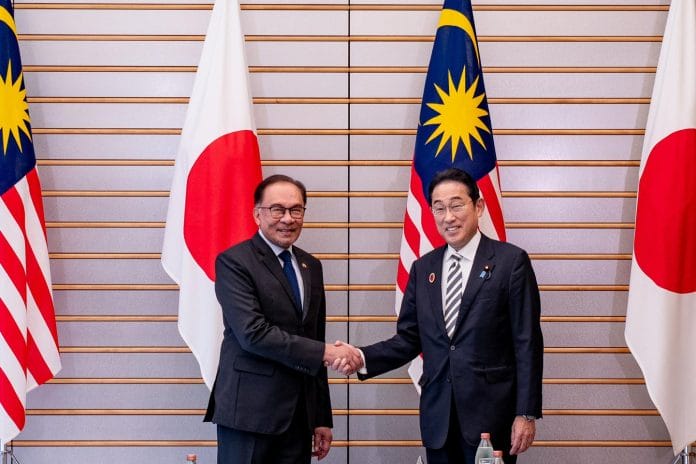Southeast Asian and Japanese leaders will agree to boost “maritime security cooperation”, according to a draft statement seen by AFP from a summit that kicked off on Saturday (Dec 16) against the backdrop of growing tensions in the South China Sea.
China claims almost the entire waterway, a vital trade corridor, and its increasingly aggressive behaviour in disputed areas has riled nations across the region as well as Washington.
Close US ally Japan, which also has competing territorial claims with China, is upping its military spending and has already boosted security cooperation in the Asia-Pacific region, including with South Korea and Australia.
According to the draft of the weekend summit’s final statement, Japan and the Association of Southeast Asian Nations (ASEAN) will commit to “(strengthen) security cooperation, including maritime security cooperation”.
Japan on Wednesday expressed “serious concern” about “dangerous actions” after the latest tense confrontation between Philippine and Chinese vessels at flashpoint reefs that included a collision and Chinese ships shooting water cannon.
Tokyo added that it “concurs with the Philippines’ long-standing objections to unlawful maritime claims, militarisation, coercive activities and threat or use of force in the South China Sea”.
Japan last month agreed to help the Philippines – whose President Ferdinand Marcos was due in Tokyo – buy coastguard vessels and to supply a radar system, and the two are discussing allowing troop deployments on each other’s soil.
With Malaysia, Japanese Prime Minister Fumio Kishida said on Saturday that he had agreed with counterpart Anwar Ibrahim to deepen strategic ties and provide 400 million yen (US$2.8 million) for “warning and surveillance” equipment.
Kishida said that with the world “at a historical turning point, Japan places great importance on promoting cooperation with ASEAN, including Malaysia, to maintain and strengthen a free and open international order based on the rule of law and to ensure a world where human dignity is protected”.
Malaysia, along with the Philippines, Vietnam, Brunei and Taiwan, have overlapping claims in the South China Sea.
AFP









